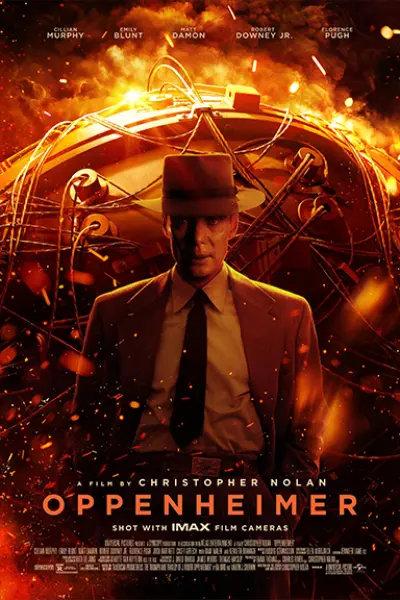
Christopher Nolan's 2023 film, "Oppenheimer," is a meticulously crafted biographical thriller that delves into the complex life of J. Robert Oppenheimer, the American physicist instrumental in the development of the first nuclear weapons during the Second World War. Drawing its narrative from the biography "American Prometheus" by Kai Bird and Martin J. Sherwin, the film features Cillian Murphy in the titular role, tracing Oppenheimer's trajectory from academic challenges to his leadership of the Manhattan Project, and his eventual ostracization following a contentious security hearing in 1954.
Set in 1926, the movie introduces a young Oppenheimer contending with anxiety and homesickness at Cavendish Laboratory, Cambridge. His formative years see a transition from experimental to theoretical physics, a change spurred by interactions with visiting scientist Niels Bohr. His burgeoning career leads him to expand quantum physics research in the United States, with tenures at the University of California, Berkeley, and the California Institute of Technology. The storyline also intricately weaves in elements of his personal life, such as his marriage to former communist Katherine "Kitty" Puening, and a relationship with Jean Tatlock, a communist party member whose eventual suicide adds a poignant layer to the narrative.
At its heart, "Oppenheimer" focuses on the World War II era and the Manhattan Project. Motivated by his Jewish heritage and the threat of the Nazi nuclear weapons program, Oppenheimer's commitment to the atomic bomb project is palpable. The film features historical figures like Edward Teller and Albert Einstein, and grapples with significant scientific and ethical questions, including fears about an atomic explosion initiating a global chain reaction. The narrative reaches a climax with the successful Trinity test and the consequential bombings of Hiroshima and Nagasaki, events that profoundly affect Oppenheimer.
In the post-war era, Oppenheimer's role as an advisor to the U.S. Atomic Energy Commission is marred by controversy due to his opposition to further nuclear development, particularly in the context of the Cold War. The film adeptly portrays the political maneuvers leading to Oppenheimer's 1954 security hearing, emphasizing his previous communist associations and the impactful testimony of his colleagues, notably Edward Teller. This phase signifies the waning of Oppenheimer's influence in nuclear policy.
Thematically rich, "Oppenheimer" engages with a plethora of intricate issues. It probes the ethical quandaries confronting scientists, especially in the realm of atomic bomb development, and the moral weight of scientific progress. The film scrutinizes Oppenheimer's internal struggles and the enduring impact of his work, alongside the paradox of progress where scientific breakthroughs can result in both monumental achievements and catastrophic outcomes. Furthermore, it underscores the salience of personal relationships amidst professional endeavors, highlighting the human element in the midst of war and the ethical dimensions of pioneering discoveries. The non-linear narrative structure enhances the film's exploration of time and memory, presenting a thorough depiction of Oppenheimer's life and legacy.
In summary, "Oppenheimer" is a cinematic homage to a profoundly intelligent yet complex individual whose contributions indelibly changed history's trajectory. It offers a nuanced portrayal of a man grappling with the immense ramifications of his scientific discoveries against the backdrop of a world coming to terms with the staggering potential of nuclear energy.


